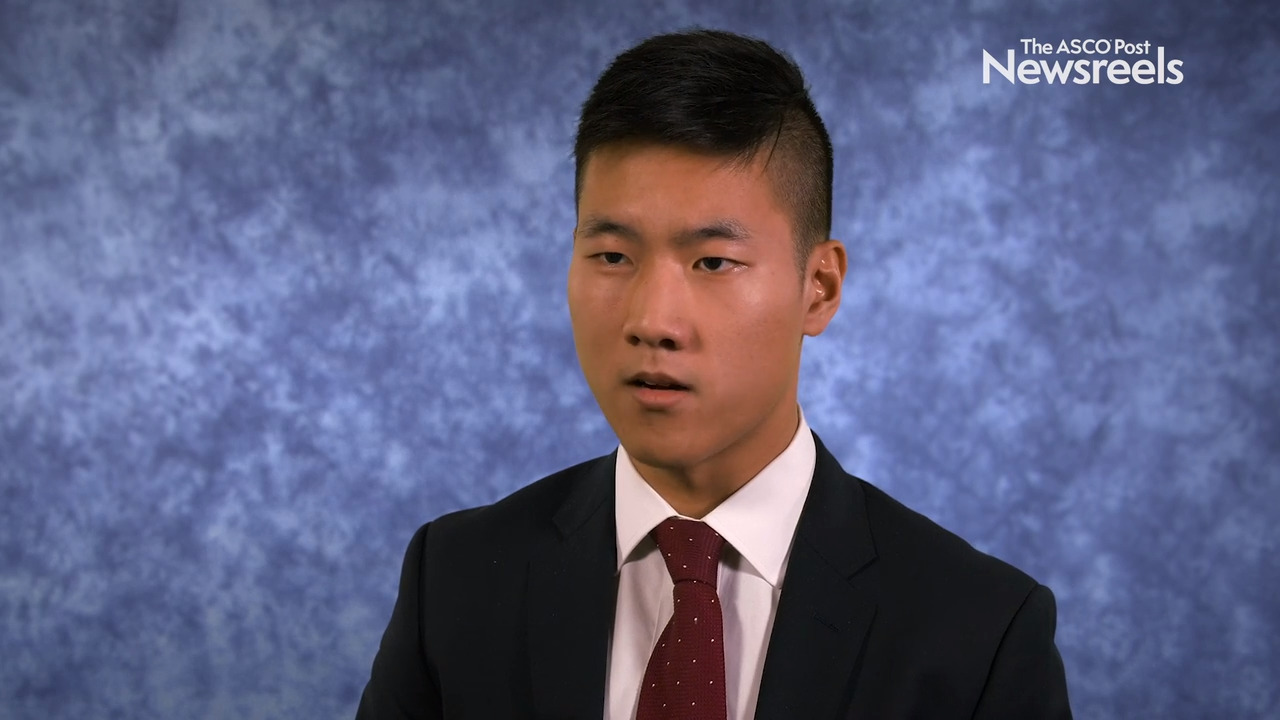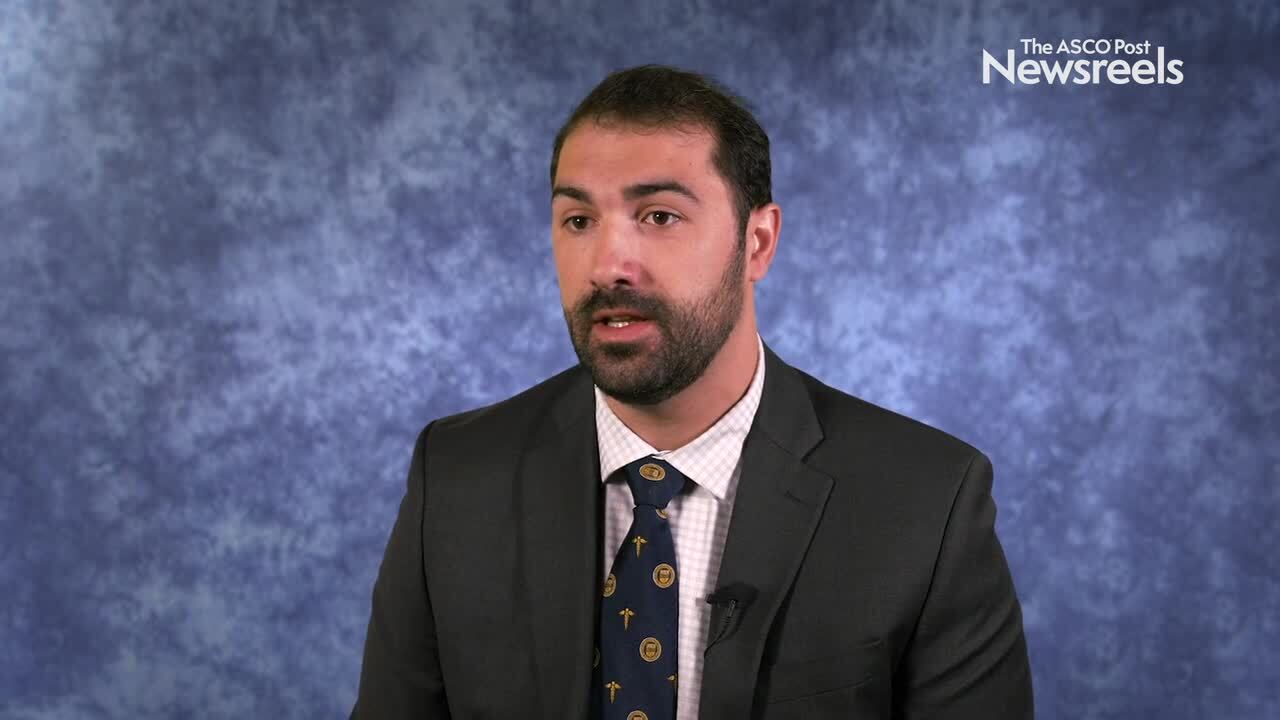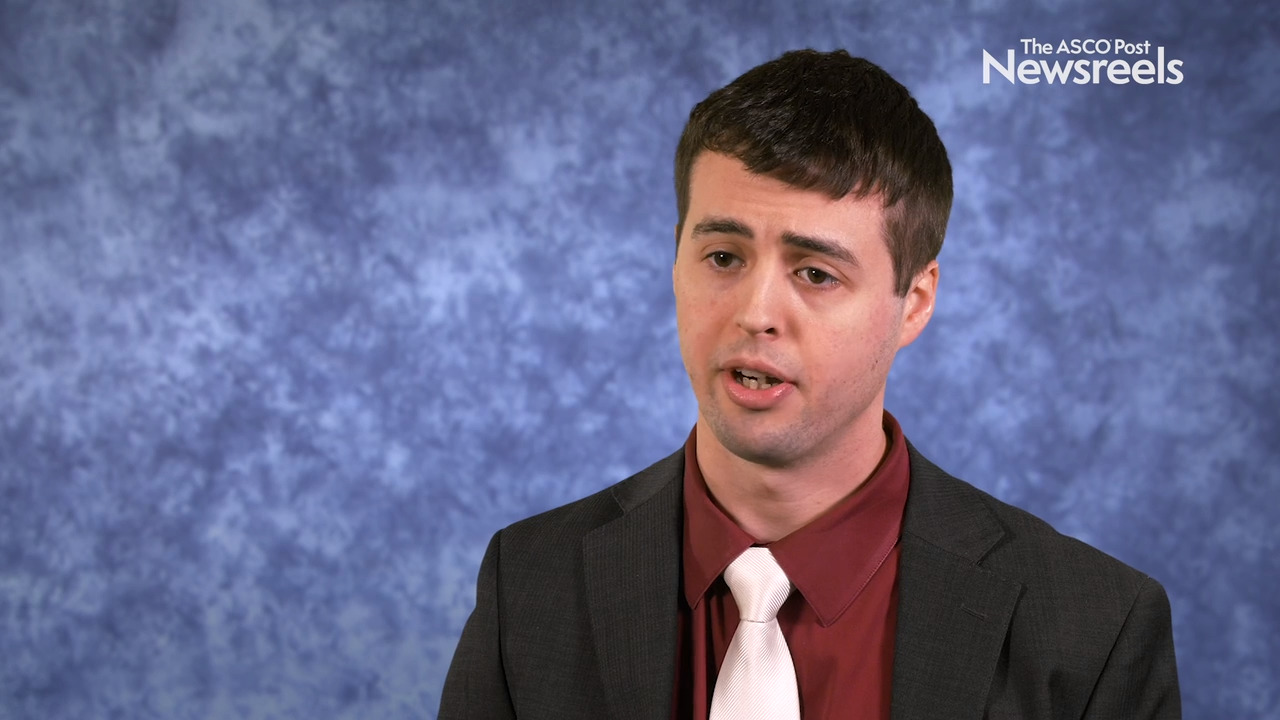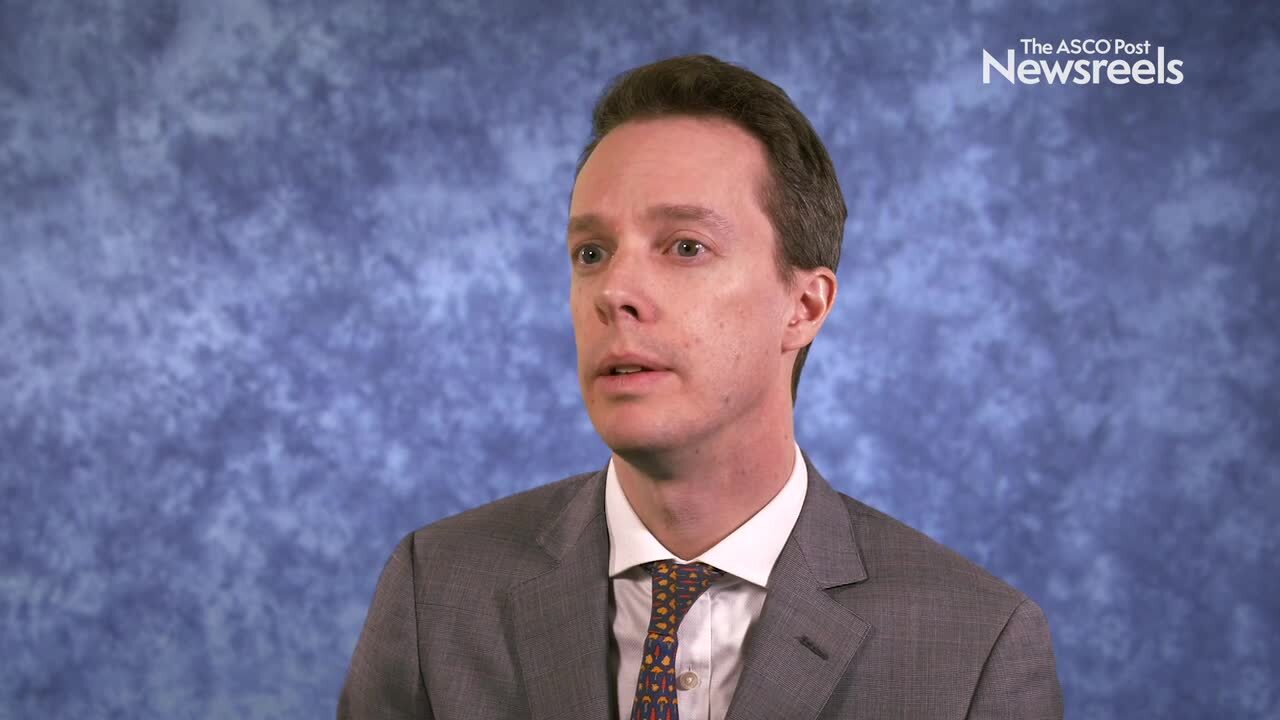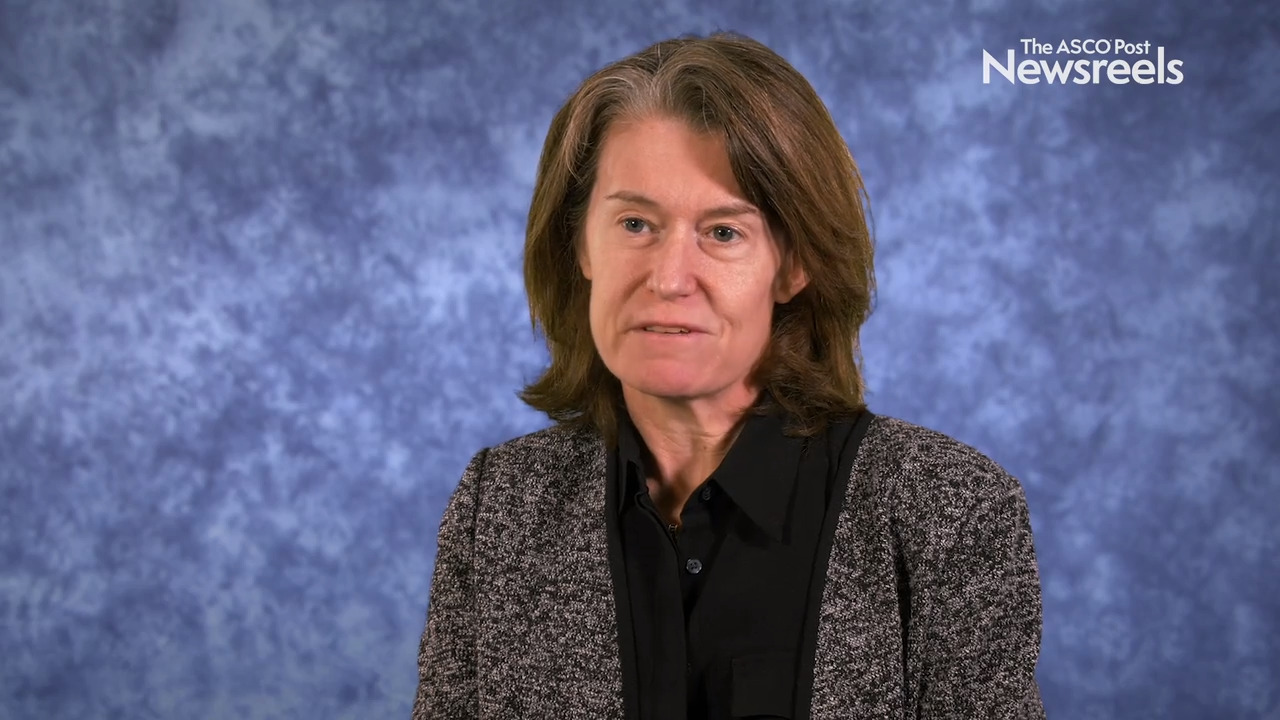Jacob J. Adashek, DO, on Immunoregulatory Molecules, Cancer Genes, and Therapeutic Insights
2020 ASCO-SITC Clinical Immuno-Oncology Symposium
Jacob J. Adashek, DO, of the University of South Florida and Moffitt Cancer Center, discusses data on combining immunoregulatory inhibition and targeted gene therapy, which may offer patients better outcomes (Abstract 10).
Kevin Tyan, of Kinnos, and currently a medical school student at Harvard University, discusses his study findings, which showed that patients with melanoma who are treated with immunotherapy had a significantly lower risk of developing colitis if they also took vitamin D ( Abstract 89).
Luis I. Ruffolo, MD, of the University of Rochester, discusses preclinical studies showing that semaphorin 4D blockade may sensitize pancreatic tumors to chemoimmunotherapy combinations (Abstract 26).
Jarrett Failing, MD, of the Mayo Clinic, discusses his study data, which show some agreement between the expression of human leukocyte antigens in primary non–small cell lung cancer with brain metastasis. His findings may have some bearing on resistance to immune checkpoint inhibitors (Abstract 43).
John N. Lukens, MD, of the Hospital of the University of Pennsylvania, discusses his finding that taking antibiotics within 3 months of starting treatment with immune checkpoint inhibitors may lead to inferior overall survival in patients with stage III or IV melanoma. The antibiotics were also linked to a higher incidence of severe immune-mediated colitis (Abstract 56).
Elizabeth A. Mittendorf, MD, PhD, of Dana-Farber Cancer Institute and Brigham and Women’s Hospital, summarizes a session she co-chaired on utilizing the immune system in neoadjuvant trials to treat melanoma, breast, and lung cancers.
